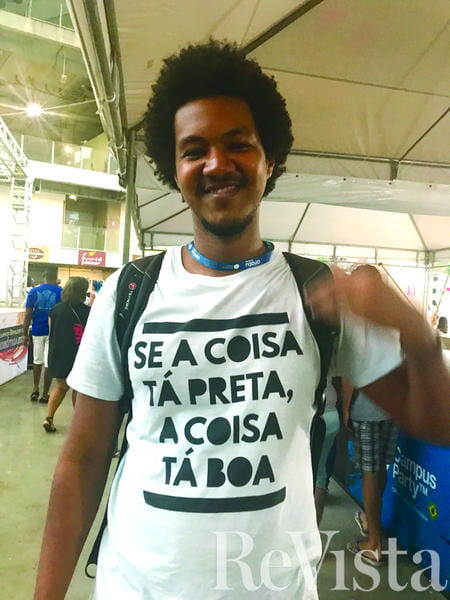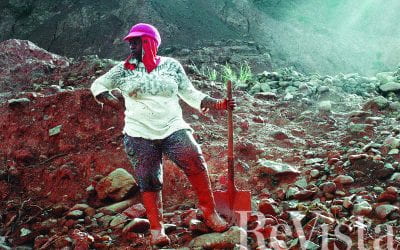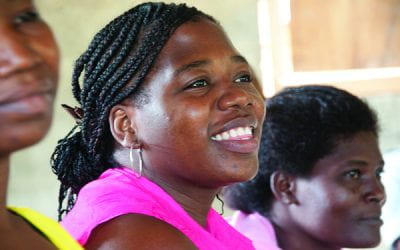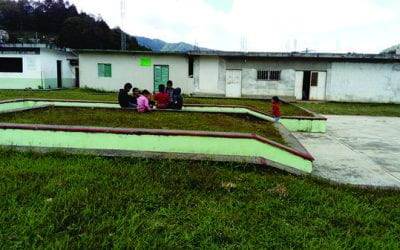The Routine of an Unconventional Path
My Life as an Afro-Latin American at Harvard
As a scientist by training and by conviction, I wish sometimes that I could just be like so many of my esteemed colleagues: just keep doing research in High-Energy Astrophysics, build a career around it, and hopefully derive my life’s satisfaction from it. But I happen to sit at an intersection of identities that constantly remind me of a larger life’s purpose that stretches beyond the lab. As a black Colombian at Harvard, first as a Ph.D. student in Physics and now as a postdoctoral researcher in Astronomy, I’ve become used to spending most of my life as a trailblazer, walking down an uncertain path that few have walked before me, yet with a responsibility to set an example and open doors for those coming behind.
Coming from parents of humble beginnings in the far reaches of Colombia, my father from the town of Tadó (Chocó) in the Pacific region, and my mother from Guamal (Magdalena) in the Caribbean region, I’m humbled to see how far we’ve come in just over one generation. It feels oftentimes like a heavy weight to carry, though, made all the heavier as it has become increasingly clear how massively underrepresented people of my background are in the high academic environments. It was difficult enough back in Bogotá, where despite my being born and raised there, people in certain social and academic circles would routinely view and treat me as an outsider, in no small part due to assumptions and judgments made based on my appearance. In my entire time at Harvard, being one of only a handful of black students and scholars not only from Colombia but from all of Latin America at any given time, the contrast was even more dramatic. Such underrepresentation of one of the core ethnic groups of our region is indicative of a massive problem not only for Colombia and Latin America, but also for Harvard.
As a casual example of how these worlds collide as a matter of course for someone like me, a couple of years ago I happened to be in a Harvard-owned building, carrying a box of drinks into an apartment I had just started renting. As I got into an elevator with a student I hadn’t met before, he innocently asked me: “Hi, where are you from?” As I was just about to reply “I’m from Colombia,” he stopped me to clarify what he meant by his original question: “I mean, what service do you work for?” To keep things simple while making clear I wasn’t there just to deliver a box, I replied: “I’m a student,” to which I got an embarrassed expression that evidenced the many wrong assumptions that led to the question he had asked.
To compound the situation, that Harvard student not only turned out to be a student from Latin America, but one who was quoted in a university website as being particularly concerned about alleviating the poverty and inequality in his native country of Mexico. While I have no reason to doubt the sincerity of his convictions, this episode illustrates the reality of environments where members of underrepresented groups are still regarded as outsiders—however unconsciously—and where purported good intentions towards those groups are no match for the leverage of having a voice and a seat at the table. When those are the same environments where groundbreaking ideas are hatched and leaders are groomed—as is the case at Harvard—the visibility that diversity affords has the potential to change the destiny of whole countries and communities.
In the case of the Afro-Latin American community in particular, there is a broad and deep reservoir of talent and agency to occupy leadership spaces, though largely hidden in plain sight. A recent personal experience was my visit this past summer to Salvador, Bahía, the capital of the Afrodescendent population of Brazil, where I was invited to speak at a forum on technology and innovation. It was heartening and hopeful to see many colleagues being trailblazers and making a difference for their communities in their own way, seeing many young Afro-Brazilians eagerly participating in hackathons, designing solutions to technology-based challenges, and using as a staging ground—of all places—Salvador’s soccer stadium of World Cup fame. In sum, they were challenging the notions about their ethnic group and their disadvantaged part of Brazil by channeling their talents in unconventional ways, such as the pursuit of science, technology and innovation. They, like many others across the region, are just waiting for opportunities to be welcomed as the protagonists and not just the spectators of their own future.
For countries and institutions, diversity is a popular buzzword, often trivialized as a politically correct exercise in achieving numbers and quotas. Yet its true power lies in the way the characteristics of individuals become encoded in the way each of them thinks. When those diverse ways of thinking are truly represented at the table to achieve inclusion, it becomes a powerful tool for progress. At a place like Harvard, true inclusion is the key to opening doors to innovative ideas and solutions, in a way that could not be achieved by any smaller subgroup of people, thereby enhancing the chief contribution of the university to the world.
At the same time, diverse ways of thinking often produce discomfort, by their very nature of challenging or even directly contradicting the ideas of others—just as we scientists do in our labs. As I see it, the true paradox of diversity and inclusion for black people lies in that people generally support the notion of rights and freedoms for us as a group, yet the same people suppress and marginalize our distinct way of thinking as individuals when it diverges from theirs, or it challenges their preconceived notions of what people in our group should do or say. What truly gives meaning to the presence of blacks or any other minority group at Harvard, or at any other place that aspires to inclusion in its truest sense, is the commitment to stimulate and enhance our ability to add perspective and challenge the ideas and assumptions of the dominant groups, as to opposed to blindly following them.
For my part, both inside and outside the lab, my heart will continue to be the heart of a scientist. Advancing the boundaries of our knowledge of the natural world is one of the most noble and visionary of human activities, and it is my life’s purpose to continue to support and contribute to that mission. Yet I and so many others of my generation of Afro-Latin Americans will also continue to engage in our own form of activism, which will consist in just being ourselves, reaffirming our identity, occupying spaces that people like us haven’t occupied before, speaking our mind without fearing the reaction from the dominant groups, and taking the inevitable challenges and disappointments with grace. Taking our rightful place in society will likely take generations to achieve, and in my personal case, I am thankful that my experience at Harvard has given me both the perspective and the tools to advance that goal, however slightly.
Winter 2018, Volume XVII, Number 2
Antonio Copete is a postdoctoral researcher at the Harvard-Smithsonian Center for Astrophysics. Among other distinctions, he was named the 2012 Afro-Colombian of the Year, Science and Technology category, and he was recognized in 2017 at the Embassy of Colombia as one the 22 most outstanding Colombians in the United States.
Related Articles
Afro-Latin Americans: Editor’s Letter
My dear friend and photographer Richard Cross (R.I.P.) introduced me to the unexpected world of San Basilio de Palenque in Colombia in 1977. He was then working closely with Colombian anthropologist Nina de Friedemann, and I’d been called upon by Sports Illustrated to…
Witches, Wives, Secretaries and Black Feminists
The issue of gender has been front and center for me, both as a subject of my fieldwork on black politics in Latin America, and how I conducted that research, particularly in how I…
Compañeros En Salud
English + Español
I have lived in non-indigenous rural Chiapas in southern Mexico since 2013, working with Compañeros En Salud (CES)—a Harvard af liated non-profit organization that partnered with…





